Paysan Le Ptit Pape 2020
| Country: | United States |
| Regions: | California California (Central Coast) |
| Winery: | I. Brand and Family |
| Grape Type: | Grenache |
| Organic: | Yes |
| Vintage: | 2020 |
| Bottle Size: | 750 ml |
Le P'tit Paysan Le Ptit Pape is made from 62% Grenache, 19% Syrah, 14% Mourvedre, 3% Counoise, 2% Cinsault
Oak: Mixture of one and twice used barrels for 11 months and puncheons
Playful interpretaion of a domestic, baby, Chateauneuf-du-Pape.
Cherry blossoms, dusty road, red plums, herb de Provence. Rosewater and red cherry on the palate, nimble with medium body. Grippy finish with firm Grenache tannins and hints of olive and sagebrush.
Fermented in several lots ranging from 0-50% whole cluster. Fermeted to dryness on skins.
Aged in neutral barrels for 11 months. From limestone rich soils
Cabrieres Chateauneuf du Pape Rouge Les Silex is made from 80% Grenache and 20% Syrah .
The vineyard is situated on the high tablelands, which are characteristic of the northern area of Châteauneuf-du-Pape. The terrain consists mainly of alpine diluvium and chalky Miocenian soil, with large flint pebbles covering the surface. These pebbles conserve the heat of the day during the night, thus avoiding too much evaporation.
This 2020 has opened up and is drinking great right now. A blend of 80% Grenache and 20% Syrah. Elegant cherry red color, with expressive notes of red fruits (strawberry and raspberry). Mellow tannins, well-balanced on the palate. I feel I need to point out the freshness, it is bright and lively on the palate, something we don’t see a lot of in this region. This also makes it extremely food friendly as it can hold up to fatty proteins.
Very good with white meat, red meat, charcuterie and cheese.
Domaine de la Janasse Chateauneuf-du-Pape Cuvee Vieilles Vignes is made from 65% Grenache, 20% Mourvèdre, 10% Syrah, 5% divers.
In contrast to Chaupin, which is made from old-vine Grenache on sandy soils, the cuvée Vieilles Vignes is from old vines of Grenache, Mourvedre, Syrah along with smaller percentages of other permitted varieties that are grown in these old vineyards. The wine is sourced from 4 terroirs: pebbly clay, sand, gravelly red clay and sandy limestone. Vieilles Vignes is always the most powerful and concentrated Châteauneuf-du-Pape cuvée made at Domaine de la Janasse.
Review:
The 2020 Châteauneuf Du Pape Vieilles Vignes also saw some stems (the estate started keeping some stems with the 2016 vintage) and was 75% destemmed, with the blend being 70% Grenache, 20% Mourvèdre, and the rest Syrah, Cinsault, and Terret Noir. As usual, it’s a more powerful, black-fruited wine comparted to the Cuvée Chaupin and has lots of crème de cassis, liquid violet, crushed stone, woodsmoke, and peppery herbs. It displays the vintage’s purity and freshness yet brings the concentration as well as the structure. I’ll be shocked if it’s not in the handful of top wines in the vintage.
-Jeb Dunnuck 96-98 Points
Grand Veneur Chateauneuf-du-Pape Rouge Les Origines is made from 50% Grenache, 30% Mourvedre and 20% Syrah
Matured in vats (grenache) and in oak casks (syrah and mourvèdre).
Deep and brilliant, purple-red colour. An exciting nose with aromas of black fruit (blackcurrant, cherry) spices and vanilla. This great aromatic complexity is found on the palate : the spices and ripe fruit appear with an elegant woodiness and harmonious tannins. The finish has good aromatic length and introduces a touch of liquorice and pepper.
A terrific Châteauneuf du Pape with great concentration and finesse.
Best between 2 and 20 years. Best to decant if young (less than 5 years old).
Soil type Extreme north of Châteauneuf du Pape. This plateau is made with a high quantity of red clay mixed with rocks. This area is considerated to be one of the best to produce rich and powerful red wines. By definition, LES ORIGINES will always deliver a great complexity and ageing potential. Winemaking & ageing Harvest is sorted by hand, destemmed and crushed. Fermentation temperature is controlled at 30°C. Vatting period of 18 to 20 days. Matured in vats (grenache) and in oak casks (syrah and mourvèdre).
Review:
"The huge nose of violet pastilles, mulberries, smoked bacon and a touch of hot asphalt pulls you into this expansive but beautifully balanced Chateauneuf that’s packed with fine, powdery tannin. So much bitter-chocolate character, but this exactly matches the deep fruit and, at the long crescendo finish, there are fascinating balsamic and hot dry-earth touches. Drinkable now, but best from 2025."
- James Suckling (March 2022), 94 pts
Ptit Paysan Chardonnay Jackss Hill is made from 100% Chardonnay
Oak: Combination of neutral oak (2% new French) and stainless tanks
This wine comes from a few vineyards at the base of Jack's Hill, planted on the distinct iron oxide granite that dominates the east side of Salinas Valley, directly east of Sleepy Hollow North.
Bright, crisp and clean with orchard fruit giving way to an intense minerality.
Beatus began with a dream and a friendship. Our dream was to make wine in Châteauneuf du Pape, one of the first regions to inspire the desire to pursue winemaking in general, and of working with Grenache in particular.
We developed a long-standing friendship with Anne-Charlotte Melia-Bachas, Proprietor of Chateau de la Font du Loup, who approached us with the idea to craft a wine together a number of years ago.
This has all come to fruition with Beatus, a wine that we have decided to make ongoing, every year — since tasting the exciting results of the first vintage in barrel.
The vineyard parcel selected for this wine is a single plot of 80-year old Grenache at the top of La Crau in Châteauneuf du Pape, the highest location in the AOC. It sits on a north-facing slope that helps guard against the sometimes intense summer heat that can affect the surrounding areas.
This plot is called “Le Poteau” and has been generously granted to us by Anne-Charlotte as the core of this wine, with supplementation of Syrah and Mourvèdre from surrounding parcels also grown on the Chateau de la Font du Loup estate, to round out the blend.
The winemaking is directed by myself and carried out by Anne-Charlotte, Stéphane Dupuy d’Angeac and their team. It is our hope to bring you one of the finest expressions of Grenache from this special region each and every vintage.
Yields from this block are very small due to the age of the vines, therefore only up to 100 cases of Beatus will be produced each year, depending on the conditions of the vintage.
Our first release was in November of 2022.
– Winemaker Todd Alexander
Review:
"The 2020 Châteauneuf Du Pape is mostly very old vine Grenache (there are small amounts of Syrah and Mourvedre) from the sandy soils of the Le Poteau parcel in the Font du Loup lieu-dit. It saw a touch of whole clusters in the ferments and, I suspect, was brought up in neutral vessels. It’s as seamless as they come, offering a classic nose of red and black berry fruits, Provençal garrigue, spice box, and loamy earth. This medium to full-bodied beauty has wonderful complexity, ultra-fine tannins, no hard edges, and a great, great finish. While it's already drinking great today, it should easily evolve for 10-15 years. It's a seriously good bottle of Châteauneuf du Pape!"
Jeb DUNNUCK, 95 Points
Le P'tit Paysan Le Ptit Pape is made from 62% Grenache, 19% Syrah, 14% Mourvedre, 3% Counoise, 2% Cinsault
Oak: Mixture of one and twice used barrels for 11 months and puncheons
Playful interpretaion of a domestic, baby, Chateauneuf-du-Pape.
Cherry blossoms, dusty road, red plums, herb de Provence. Rosewater and red cherry on the palate, nimble with medium body. Grippy finish with firm Grenache tannins and hints of olive and sagebrush.
Fermented in several lots ranging from 0-50% whole cluster. Fermeted to dryness on skins.
Aged in neutral barrels for 11 months. From limestone rich soils
They did not set out to make these wines. They discovered great vineyards at the edge of sensible farming and decided to bring them to light.
The farther they looked, the more they found – remote, challenging vineyards, with hard depleted soils, and intense sunlight tempered only by the coastal breeze. Vineyards capable of producing only the most idiosyncratic wines. Their goal as winemakers is to lightly polish the roughest edges and leave the idiosyncrasy intact. It is here in the back country, filled with individual character, where Le P’tit Paysan comes to life.
Ian Brand's first winery job was in the lab and cellar at Bonny Doon Winery in Santa Cruz. Ian was Vineyard Manager and Assistant Winemaker at Big Basin Vineyards in the Santa Cruz Mountains for four years before he and Heather began their own project.
In the growing sites I Brand Family Winery looks for shallow, rocky soils, good site selection and proper varietal match with the soil and climate. The often overlooked greater Monterey Bay Area has a plethora of underappreciated, rocky vineyards.
Vineyard names:
Fellom Ranch, Bates Ranch, Besson, Summers, Wheeler, Brigantino, Bayly Ranch, Enz, Brosseau, Spur Ranch, Kristy, Quail Run, La Belle Rose, Cedar Lane, Mission Ranch, Escolle, Arroyo Seco Canyon, Los Ositos.
Farming:
Brosseau (cert organic)
Enz (practicing organic, dry farmed)
Besson (dry farmed)
Bates (dry farmed)
Sustainable: Kristy, Bayly, Quail Run, Los Ositos.
Ottella Lugana DOC Le Creete is made from 100% Turbiano (clonal type of Trebbiano di Lugana)
PRODUCTION AREA: S. Benedetto di Lugana. The grapes are harvested exclusively from our own vineyards; harvesting is strictly manual in small 17kg-crates
TRAINING METHOD: Guyot, double arc
Golden, warm, intense straw yellow. Immediate exotic notes.
It develops in a very pleasant fashion, good mineral impression Rich, succulent and well balanced for a truly
satisfactory mouthfeel. Mineral on the finish with just enough acidity to
provide lift and depth.
FOOD: Sea or lake fish to bring out its outstanding features; goes well with white meat and soup, and has quite a surprising affinity with tasty cheese
ALCOHOL BY VOLUME: 13% vol
SERVING TEMPERATURE: 10-12 degrees Celcius
Review:
Elderflower, tropical fruit and citrus aromas mingle with a whiff of crushed tomato vine. The bright, tangy palate offers white peach, gooseberry and grapefruit before a bitter almond finish.
-Wine Enthusiast 91 Points
Es Lo Que Hay Garnacha is made from 95% Garnacha, 5% Moristel, Miguel de Arco and Provechón (Bobal). 75 to 100 year old vines.
“ES LO QUE HAY - it is what it is. A common Spanish expression, but one I like to reserve for the few old high altitude Garnacha vineyards that survive in Aragon . What you taste in the bottle is a true expression of what there is in the vineyard. It´s as simple as that.”
High altitude ancient vineyards (75-100 years) at 1,000 to 1,100 meters above sea level with Pizarra slate and quartzite soils. Completely dry grown and unirrigated, this is an inhospitable continental climate with extreme changes of temperature where mountain herbs, almonds, cherry trees and Garnacha form a breathtaking patchwork. Low annual rainfall of 200-300mm and the remarkable soils produce fine and elegant Garnacha which is punctuated by intense black fruit flavors with complex mineral, smoke and garrigue notes.
Review:
"The red 2019 Es Lo Que Hay is mostly old-vine Garnacha with 5% other grapes, mostly Moristel with a little Miguel de Arco and some Provechón (Bobal), from very stony old vineyards in the village of Villarroya de la Sierra. The grapes fermented together with 20% full clusters in concrete and were destemmed after a five-day cold soak with the natural yeasts; then the wine matured mostly in concrete with some leftovers in Flextank egg for 15 months. It's ripe without excess (14.26% real alcohol), balanced by low pH and good acidity and has a powerful Mediterranean profile, round and full-bodied, with hints of dry hay and straw and a touch of dark chocolate. The 2019s are evolving nicely and should have a positive development in bottle, and this is a good example. 8,270 bottles produced. It was bottled in December 2020. - Luis Gutiérrez"
- Robert Parker's Wine Advocate (November 2021), 93 pts
"The 2019 Garnacha Vinas Viejas is just about all Grenache (there are small amounts of Moristel, Miguel de Arco, and Bobal) from ancient vines that saw a touch of stems and aging in concrete tanks. This plump, medium to full-bodied, round, downright sexy beauty gives up lots of ripe red and black fruits as well as peppery spice, herbes de Provence, and sandalwood. It's balanced, has supple, incredibly polished tannins, no hard edges, and is just a beautiful Garnacha that has so much to love. It will keep for 5-7 years, if not longer."
- Jeb Dunnuck (August 2022), 93 pts
Gaec de Brangers Menetou Salon Blanc 100% Sauvignon Blanc is crisp and refreshing with rich, ripe lime and grapefruit aromas. Elegant, beautifully rounded, harmonious and well-balanced, a mineral sytle and a smooth and long finish. It is ideal as an aperitif and a great match with shellfish, smoked and grilled salmon, goat cheese.
DOMAINE DU GAEC DES BRANGERS is owned by the CHAVET family, which is one of the most reknown winemaking families of the Menetou-Salon Appellation. Philippe Chavet has been running the estate for 25 years and each year, his cuvees are awarded in the international competitions and by the international press.
Unoaked
12.5 ABV
Average age of the vines is 20 years old. Traditional winemaking in temperature-controlled stainless steel tank.
Slow fermentation at low temperature.
Ideal as an aperitif, any cooked fish such as smoked and grilled salmon, and with goat cheese.
- back
Kosta Browne Russian River Valley Pinot Noir is made from 100 percent Pinot Noir.
On the nose, pronounced dark red cherry, intertwined with layers of blackberry and blueberry. The palate shows pomegranate and bramble fruit notes are effortlessly balanced with a refreshing acidity, culminating in a robust, enduring finish.
This year’s blend proudly features our Bootlegger’s Hill Estate vineyard alongside two cherished vineyard designates: Giusti Ranch and Keefer Ranch. Revealing enticing aromas of dark red cherry, blueberry, and raspberry, this Pinot Noir is both flavorful and poised. A refreshing lift gracefully traverses the palate, leading to a captivatingly long finish.
Our Appellation Series wines embody our unwavering commitment to exploration and the artistry of crafting soulful, thought-provoking wines that pay homage to the world’s extraordinary terroirs.
Most vineyards in the Russian River Valley share a common influence—the cooling effect that follows the river inland from the Pacific coast. The resulting fog gracefully envelops the vines at night, providing a crucial respite from the daytime heat. These diurnal temperature shifts delicately slow down ripening, nurturing nuanced flavors in the grapes, earning this region its well-deserved title as the heartland of California Pinot Noir.
Fact of Note: This Russian River Valley blend was the longest to ferment in oak from our Appellation Series.
Johann Michel Cuvee Grain Noir is made from 100 percent Syrah
This is delicious. Expressive, deep, rich, silky and juicy.
Well structured and round, it displays red fruit, leather, black cherry, liquorice and black berry aromas.
This Cornas is a blend from 2 different vineyard sites:
- 60% of the final blend is coming from vineyards located on the hillside (16 year old vines on the "coteau") which is planted on sandy soils, decomposed granite and some roicks, giving the strucutre, the spiciness and the licorice type of flavors to the blend.
- the other 40% of the final blend is coming from the bottom of the slope (40 years old vines on the "pied de coteau") which is planted on sandy soils, bringing acidity and balance to the wine.
Manual harvest, selection of the grapes, 100% destemming, fermentation in tanks for 3 weeks, daily remontage and pigeage.
Malolactic fermentation in oak barrels and aging on the lees for 12-18 months in barrels (2 to 4 year old barrels)

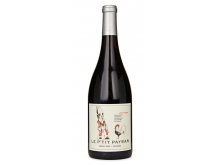
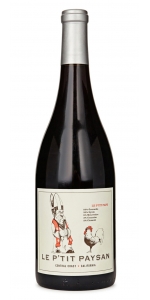
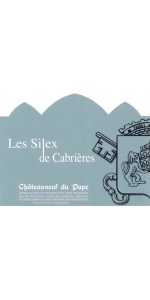
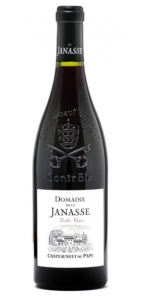
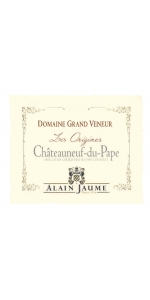
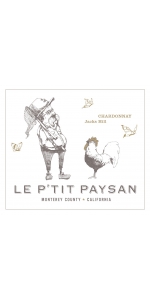
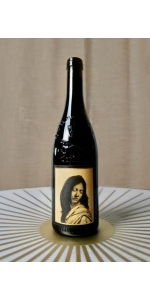
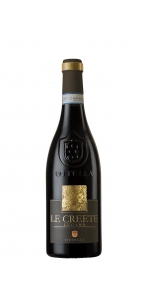
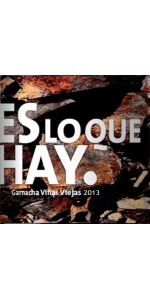
-150x300.jpg)



